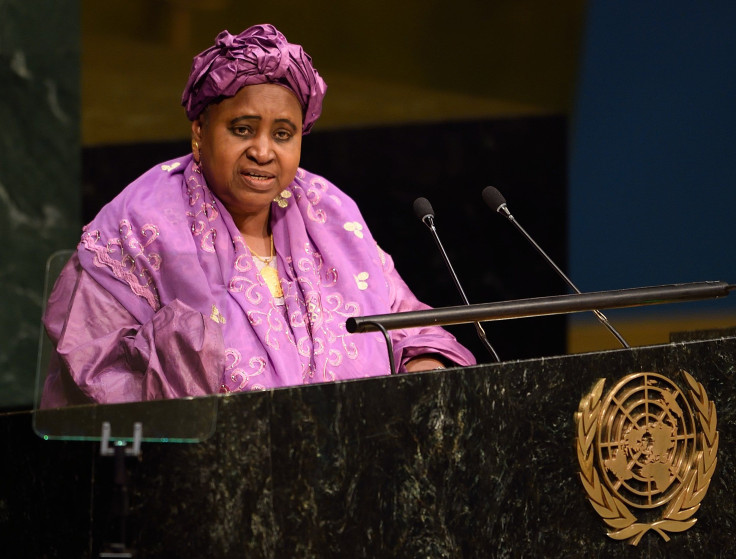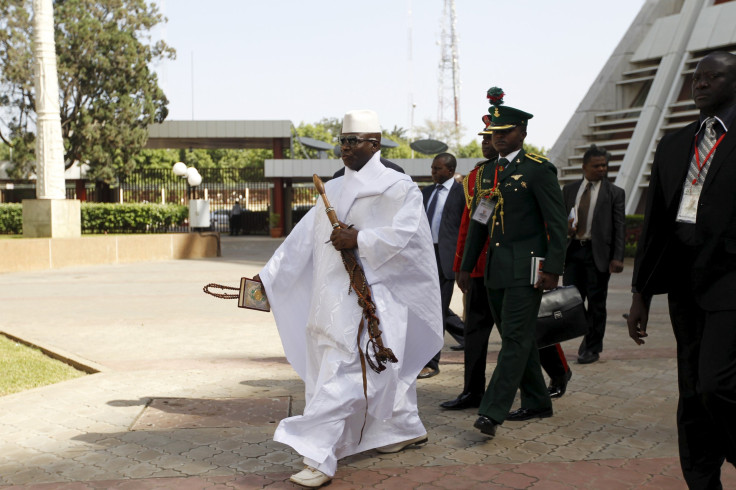Islamic Republic And Muslim Majority Gambia Bans Female Government Employees From Showing Hair

The Gambian government has banned its female employees from showing their hair at work and ordered them to wear headscarves, commonly referred to as the "hijab" in Islam. The new rule was announced Monday in a memo circulated to all ministries and departments and later obtained by private newspapers and news agencies, just one month after President Yahya Jammeh declared the Muslim-majority country an Islamic republic.
"[An] executive directive has been issued that all female staff within the government ministries, departments and agencies are no longer allowed to expose their hair during official working hours,” the leaked memo said, according to BBC News. "Female staff are urged to use head ties and neatly wrap their hair.”
Gambia has a population of 1.8 million people and 95 percent are Muslim. The tiny West African nation, which borders Muslim majority Senegal, is now the second Islamic republic in Africa, after Mauritania. Jammeh said the proclamation was in line with the Gambia’s “religious identity and values” and was designed to distance the country from its colonial past. He added that no dress code would be imposed and citizens of other faiths would still be able to practice freely.
"As Muslims are the majority in the country, Gambia cannot afford to continue the colonial legacy," Jammeh told state TV on Dec. 12, according to BBC News reported.

Jammeh’s critics, however, said the move was intended to divert attention away from financial hardship. Gambia is known for its white-sand beaches and has been a popular tourist destination for European citizens, but relations with the West have waned in recent years. The European Union temporarily withheld aid money to the country in 2014 over its poor human rights record, reported Reuters.
Meanwhile, the recent Ebola outbreak in West Africa has hindered economic sectors in Gambia, one of Africa’s smallest and poorest nations whose main industries are agriculture and tourism. Economic growth contracted from 4.3 percent in 2013 to about -0.7 percent in 2014, according to African Economic Outlook, which combines expertise of the African Development Bank, the Organization for Economic Cooperation and Development and the United Nations Development Program.
© Copyright IBTimes 2024. All rights reserved.





















